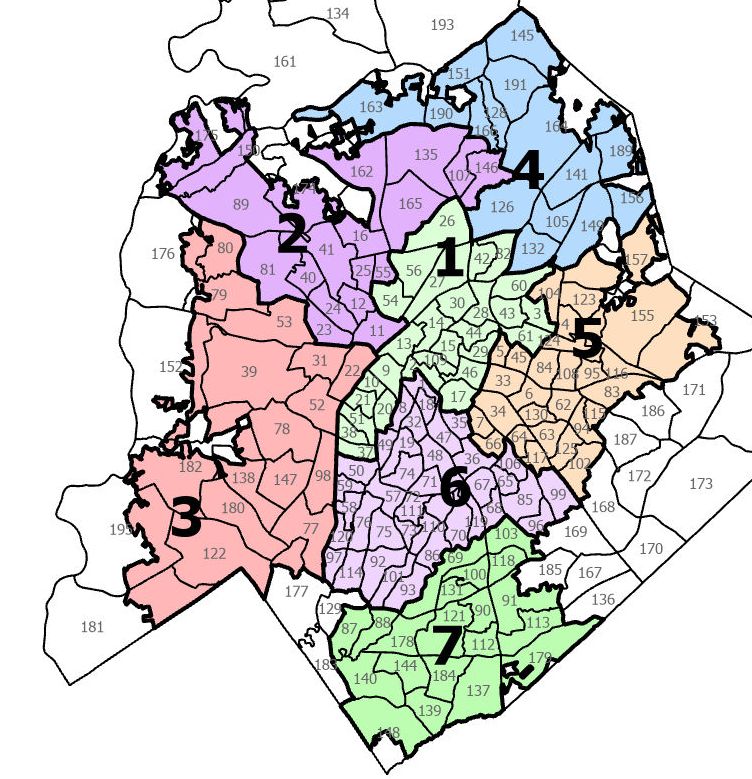Early voting kicked off Thursday in Charlotte’s municipal primaries, with races for mayor and the entire city council.
This is the first election in North Carolina to require voters to show photo ID after a state Supreme Court decision earlier this year.
One-stop voting runs to Sept. 9 and the primary election will be held Sept. 12. The General Election is set for Nov. 7.
Three candidates are challenging incumbent Democrat Mayor Vi Lyles for the top seat on city council. Democrat Lucille Puckett is challenging Lyles in the primary. Lyles defeated Puckett with a wide margin during the last mayoral election.

The winner of the Democratic primary for Charlotte mayor will go up against Republican Misun Kim and Libertarian Rob Yates in the General Election.
Charlotte will also have Democratic primaries for four at-large seats and four district seats on the city council.
Eight candidates, seven of whom are Democrats, are running for the at-large city council seats.
Democrats will also have primaries for districts 2, 3, 4 and 5.
District 1’s Dante Anderson and District 7’s Ed Driggs are running unopposed. Democrat Stephanie Hand is running to challenge incumbent Republican Tariq Scott Bokhari for District 6.
Mayor Pro Tem Braxton Winston is not running for reelection to his at-large seat. He said he plans to run for North Carolina Commissioner of Labor next year.
There is currently one early-voting site open in Charlotte at the Hal Marshall building in Uptown at 618 N. College St.
Beginning Sept. 5, the Mecklenburg County Board of Elections will open nine more sites for one-stop voting:
- Allegra Westbrooks Regional Library, 2412 Beatties Ford Rd.
- Elon Park Rec Center, 11401 Ardrey Kell Rd.
- Independence Regional Library, 6000 Conference Dr.
- Marion Diehl Rec Center, 2219 Tyvola Rd.
- South County Regional Library, 5801 Rea Rd.
- Southpark Regional Library, 7015 Carnegie Blvd.
- Steele Creek Library, 13620 Steele Creek Rd.
- Old Kohls, 9315 N Tryon St.
- West Boulevard Library, 2157 West Blvd.
Charlotte residents can cast ballots at any early voting site, unlike on Election Day when voters have to go to their assigned precinct. Residents can also register and vote on the same day.
The big change for elections this year in North Carolina will be voter ID. Voters will be required to show photo identification to cast a ballot.
The North Carolina Supreme Court overturned its own decision earlier this year to require voter ID.
The 2023 municipal elections will be the first time voters are required to show ID with the new law. Most will be able to show their driver’s license.
The address on the ID does not have to match the voter’s registration records.
As of Friday afternoon, Charlotte was not reporting any issues with the new voter ID requirements.
At the early voting location on North College Street, site coordinator Vanessa Ramseur said it was going well.
“It’s working so far. Our first day was a very good day, people brought their IDs in, and we didn’t have any major problems,” Ramseur said.
Nearly 100 people voted the first day.
Meanwhile, Kristin Mavromatis with the Mecklenburg County Board of Elections said most voters would not need to worry about the new requirement.
“So, the easiest thing is that, if you have a driver’s license or state ID from DMV, you’re already good to go. Just bring your driver’s license or your North Carolina state ID. Show that, and you will have no issues,” Mavromatis said.
She also said the city’s election was going smoothly.
“We are the first in the state to roll it out,” Mavromatis added, “It’s been smooth.”
Lastly, Mavromatis said voters should remember to check their registered address before heading to the polls.
For those without a photo ID, people can get one for free from the North Carolina Department of Motor Vehicles. County election boards will also provide free photo IDs to people who need them to vote, and require less paperwork than the DMV.
There are also exceptions for people who cannot show ID, including lack of transportation, disability or illness, not having the documents needed to get an ID, or for a lost or stolen ID.
Voters who ask for exceptions will have to cast a provisional ballot, which must be reviewed by the county Board of Elections. Voters can also bring their ID to the county elections office after they case their ballot, as long as it’s before the county canvas date.
People who vote by mail will be required to include a photocopy of their photo ID along with their ballot.
Reporter Jacob Reynolds contributed to this story.



